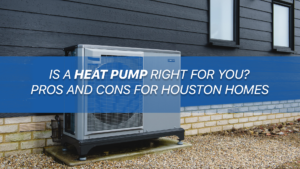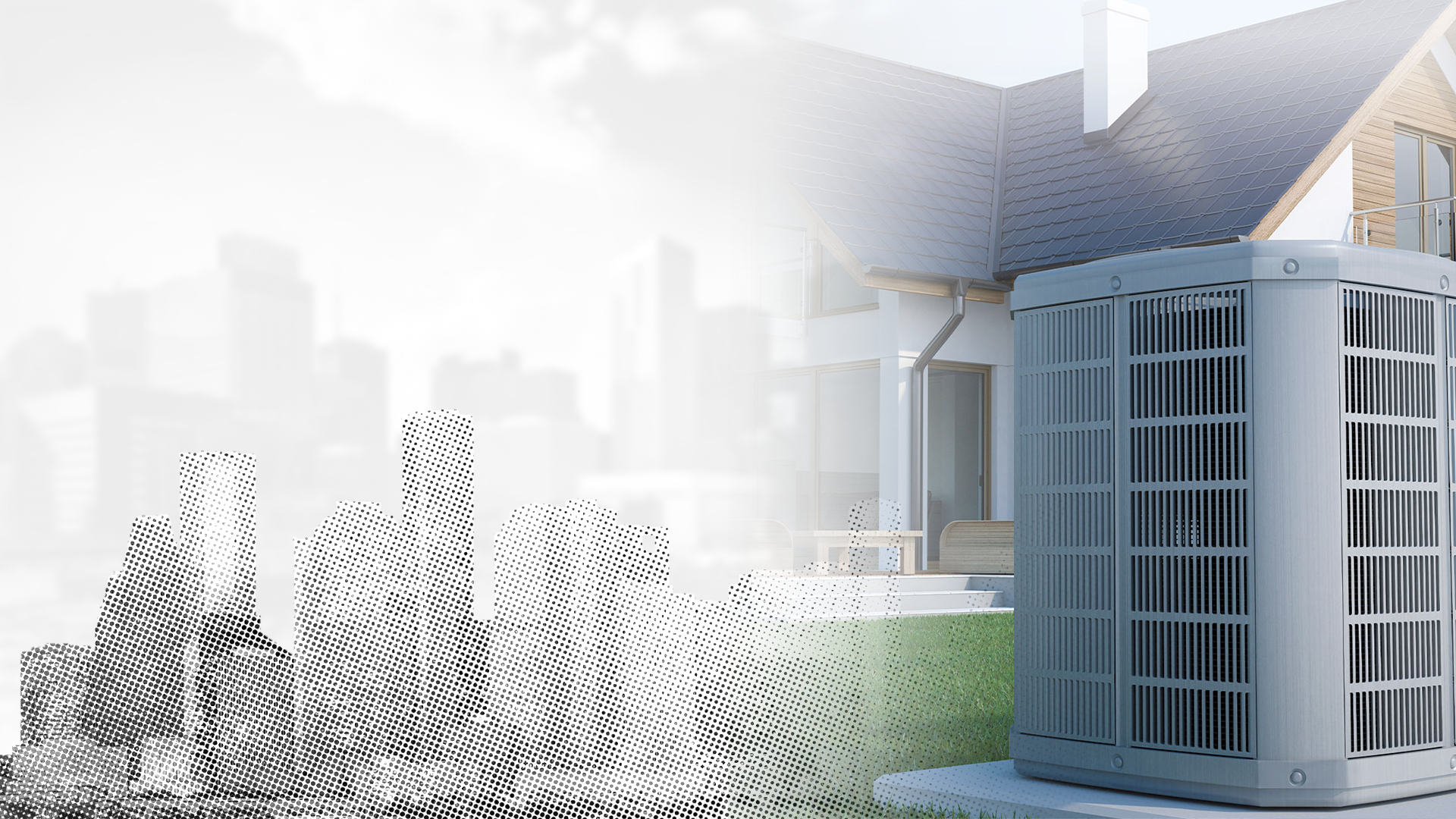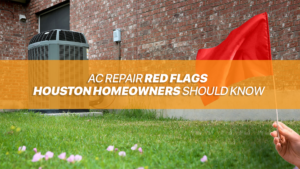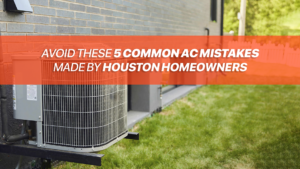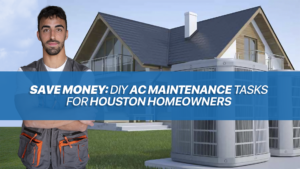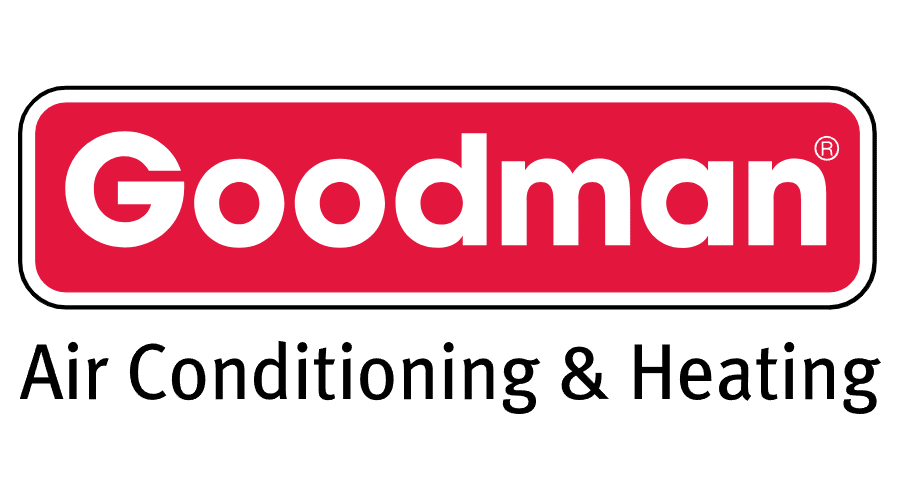It’s the peak of summer in Houston, and you notice your air conditioner running nonstop, even though the house already feels icy cold. The constant humming and blasting of frigid air may keep you chillier than winter inside, but it comes at a steep cost. An air conditioner that never shuts off or cycles can devour huge amounts of electricity and send your utility bills skyrocketing.
Worse yet, an AC unit that continuously runs 24/7 may signal a brewing issue needing attention before failure occurs. Let’s explore the common causes when your system keeps running without shutting off for a break. We’ll also provide actionable tips on troubleshooting and fixing these problems, so you can restore normal operation. Read on to finally understand what’s making your AC fan persistently run and how to make it stop for good.
What’s Happening Inside Your AC System?
First, let’s briefly review what’s happening inside your air conditioning system when it never stops running. Your AC unit has three key components – an outdoor condenser coil, indoor evaporator coil, and a compressor that circulates refrigerant between them. Under normal temperatures, a thermostat senses when the indoor temperature rises above your set point. It transmits a signal to the compressor and blower fan to start cooling. The compressor pressurizes the refrigerant gas, which condenses into a liquid in the outdoor coil. This liquid refrigerant then passes through the indoor evaporator coil while expanding into a gas again, pulling heat from the surrounding air. The now cooled air recirculates through your home, lowering the interior temperature.
Once the thermostat detects the home has reached your desired coolness, it shuts off the compressor and blower fan until more cooling is demanded. This cycle repeats automatically to maintain your comfortable indoor climate. But when the AC keeps running nonstop, never turning off even when already frigid inside, something in this cooling process has malfunctioned. The system mistakenly believes cooling is still required, so it keeps blowing cold air 24/7. Let’s explore the most widespread culprits that can cause this endless operation.
Why Your Air Conditioner Keeps Running Constantly
Low Refrigerant Levels
The refrigerant inside your AC unit is the substance that absorbs and releases heat to provide cooling. So if the refrigerant level drops too low, the system will struggle to cool your home efficiently. With inadequate refrigerant, the AC may run continuously in a futile effort to keep pace with the cooling load. Slow leaks are one of the most common reasons for chronically low refrigerant.
Clogged Air Filter
Your AC has an air filter, usually near the indoor evaporator coil, that catches dust and debris in the airflow. But if this filter becomes excessively dirty and clogged, not enough air can pass through it. The reduced airflow starves the AC system by blocking its air supply. The constant running tries to compensate for the restricted air volume.
Faulty Thermostat
If your thermostat settings are off or the sensor itself malfunctions, it can falsely read that more cooling is still required. Stuck contacts, dead batteries, electrical faults, or even just pushing the wrong buttons can cause it to keep sending constant signals to the AC system, even when indoor temperatures are already lowered sufficiently.
Incorrect Refrigerant Charge
The precise amount and balance of refrigerant charge in your AC system is vital for efficient operation. Too much refrigerant can be just as problematic as too little. An improper charge prevents optimal heat transfer and moisture removal from the air. The AC will run excessively trying to reach the right equilibrium between cooling capacity and dehumidification.
Improper AC System Sizing
An oversized AC unit will have excess cooling capacity for your home, while an undersized model won’t have enough power. Both situations can lead to short run times and constant reactivation of the system. It struggles to align cooling output with the home’s actual demands.
Failing AC Components
Issues with the compressor, blower motor, capacitors, or other integral components can force the AC system to run continuously trying to cool the indoor air. These parts may be progressively failing or right on the cusp of total breakdown.
Poorly Designed or Damaged Ductwork
Leaky ductwork or improper design makes your AC system work considerably harder to deliver its cooled air in the right volumes and flow rates. The constant running attempts to offset reduced airflow or conditioning losses from duct leaks.
Insufficient Insulation
When a home lacks adequate insulation in the attic, walls or windows, substantial summertime heat gain can occur. The AC must run persistently just to offset the incoming heat through those weak points and achieve the indoor temperature set point.
In summary, if your AC unit keeps running relentlessly with no off cycles, it likely signals some underlying problem is disrupting normal operation. The system falsely believes more cooling is still essential, so it continues blowing cold air 24/7 trying in vain to satisfy the thermostat. Now let’s explore solutions…
How To Troubleshoot An Air Conditioner That Won’t Quit Running
Now that you know the most common issues that can cause endless AC operation, how can you pinpoint the problem? Methodically troubleshoot through these steps:
- Verify thermostat settings – Ensure it’s set to “cool” mode and the temperature is several degrees below the actual indoor reading. If it matches the true temperature, the AC shouldn’t run continuously.
- Inspect the outdoor unit – Check for debris blocking airflow, damaged fins, ice buildup on coils. These can impede proper heat transfer.
- Check refrigerant level – Use gauges to measure the pressures and determine if the charge is sufficient. Undercharged systems run constantly trying to cool.
- Replace air filter – A severely clogged filter chokes off airflow, causing constant operation. Installing a clean filter can allow normal cycling to resume.
- Monitor evaporator temperature – If it doesn’t get at least 15°F cooler than the home’s air, low refrigerant flow is likely the issue.
- Test the capacitor – Weak or failing capacitors force the AC system to run excessively trying to cool your home.
- Evaluate insulation & ducts – Poorly insulated buildings and leaky ductwork increase cooling demands. The AC runs more than normal trying to compensate.
- Listen for abnormal noises – Unusual grinding, buzzing or loud humming can indicate a failing component.
- Call a professional – If self-troubleshooting fails to reveal the problem, have an HVAC technician perform a comprehensive diagnostic tune-up on your air conditioner. With proper tools and expertise, they can isolate the root cause and suggest any needed repairs. Don’t keep guessing and wasting energy on constant operation.
Solutions To Stop An AC That Keeps Running Relentlessly
Once troubleshooting reveals the underlying issue, you can take steps to correctly fix it and restore normal operation cycles. Here are targeted solutions for the most prevalent causes of nonstop AC runtime:
- Refrigerant Leak – Pinpoint any leaks and reseal them. Then recharge the system with the proper amount of R-410a refrigerant recommended by the manufacturer. Special UV dye can assist in locating the breach point.
- Blocked Air Filter – Simply replacing the clogged air filter can allow airflow to resume normally. Use the right MERV rating and check filters monthly in summer.
- Thermostat Defects – Replace dead batteries or the entire unit if needed. Reprogram the thermostat correctly for your schedule and desired temperatures. Ensure contacts are clean.
- Wrong Refrigerant Charge – Vacuum and reclaim old refrigerant before weighing in the precise charge amount specified for your AC system. Proper charging is crucial.
- Oversized/Undersized Unit – Consult an HVAC pro to evaluate if AC unit tonnage matches your home size. They may suggest upgrades to a properly sized model or additional zones.
- Failing Parts – Have a technician test components like the compressor, blower motor and capacitors. Repair or replace any defective parts to enable efficient operation.
- Poor Ductwork – Seal duct leaks, add insulation wraps, and modify ducts for optimal airflow and conditioned air delivery. Proper ductwork reduces AC runtime.
- Lacking Insulation – Increase attic insulation to R-38+ and add window/duct insulation. Install better insulating windows or window films to reduce heat transfer into your home’s interior.
- Refrigerant Restrictions – If flow is obstructed by contaminants or clogs, flushing the system thoroughly can clear the path so refrigerant moves freely again.
In some instances, the AC may still run continuously despite repairs. If the system is very outdated or components are failing, replacement of the worn-out parts may be required to permanently resolve chronic constant operation. An AC unit that repeatedly loses refrigerant or has compressor problems may indicate replacing the system makes better economic sense long-term.
Ways To Prevent Excessive AC Run Times
While occasional AC operation is normal on hot Houston days, you don’t want the system running 24/7 for extended periods. This squanders substantial energy, strains components, and can gradually cause cumulative damage. Here are tips to help avoid excessive runtimes:
- Schedule pre-season tune-ups to ensure peak efficiency entering summer.
- Check filters monthly and replace when dirty. This is one of the easiest fixes to reduce run times.
- Clear any debris blocking the outdoor unit’s airflow path and ventilation.
- Set the thermostat fan to “auto” and use reasonable temp settings around 72-76°F when occupying your home.
- Ensure the condenser unit has adequate clearance on all sides. Avoid placing objects right against it.
- Have yearly AC checkups to catch any issues before failure occurs. Preventative maintenance is key.
- Improve insulation, seal leaks, and reduce solar gain to lessen the cooling load on your AC system.
- Consider smart WiFi thermostats to optimize runtimes and help manage energy costs.
- Replace very old, inefficient AC units descending into constant operation and frequent breakdowns.
Remember, an AC that never stops running constantly will devour substantially more electricity. It also may fail sooner if underlying problems remain unresolved. But following sound maintenance practices and troubleshooting promptly can restore shorter, more efficient operating cycles. Don’t let your AC run ceaselessly amidst the hot Houston summer. Call Turbo AC Repair at (281) 626-5938 for professional AC service, maintenance, or repairs anytime your system acts up or won’t stop running. Our skilled technicians serve Pearland, Friendswood, League City, Houston metro, TX and surrounding areas.
